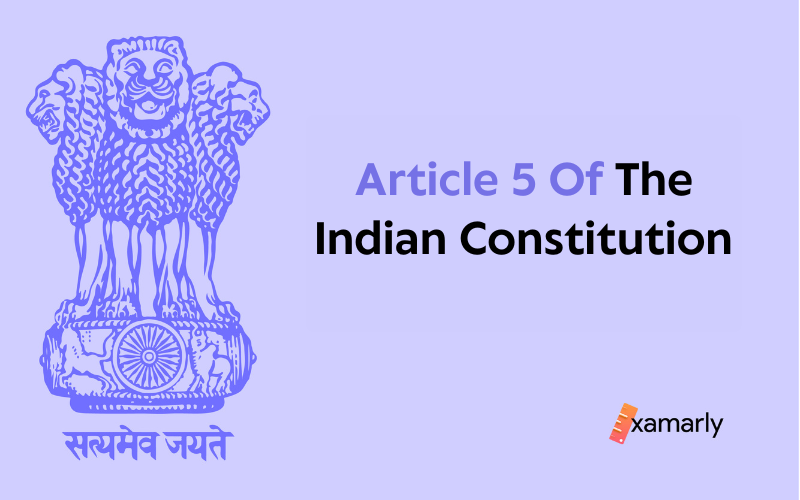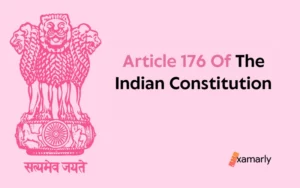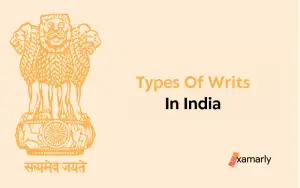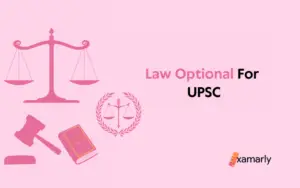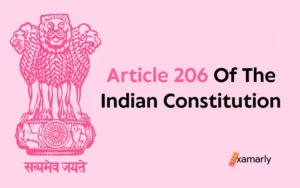Article 5 of the Indian constitution defines citizenship. It states that a person who has lived in India for five years is a citizen of the country. This applies to a natural-born citizen as well as a person who immigrated to India in the past. A citizen of India is entitled to certain rights, including voting rights.
The provisions, judicial rulings, and reasons related to Article 5 of the Indian Constitution are discussed in the following article. The paper emphasizes the application of Article 5 and examines critically how Articles 7 and 9 supersede it.
- What Is Article 5 Of The Indian Constitution?
- Meaning Of Citizenship
- Analysis Of Article 5
- What It Takes To Become A Citizen Of India As Per Article 5
- Benefits Of Being An Indian Citizen
- Limitations
- Landmark Judgement
- Rashtriya Mukti Morcha v. Union of India 2006
- Firoz Meharuddin v. Sub-Divisional Officer
- Kulathil Mammu v. The State Of Kerala (1966)
- Conclusion
- FAQs Of Article 5 Of The Indian Constitution
What Is Article 5 Of The Indian Constitution?
Every country, group, or organization has a set of laws governing its operations. These laws are known as the constitution, and the Indian Constitution includes a section that addresses citizenship.
Article 5 of the Indian Constitution specifies the rights of citizenship. The conditions of Article 5 have been thoroughly laid out here.
This article highlights citizenship for those alive on January 26, 1950, the day the Constitution went into effect. Citizenship is granted to those who reside in Indian territory and meet the following criteria:
- Who was born on Indian territory, or
- Whose parent was born on Indian territory, or
- Who has typically lived in India for at least five years before the Constitution’s start?
Citizenship-related clauses are typically found. It is in statutory legislation in most countries. In India, however, we observe that Article 5 addresses citizenship initially. The peculiar circumstances present in India at the time of freedom are responsible for the motivation for this article. The princely states were free to join. They can join either India or Pakistan when the nation was being partitioned into these two entities.
It was necessary to provide Indian citizenship to those who had lived in Pakistan before moving to India and to deny Indian citizenship to those who had lived in India before moving to Pakistan. Consequently, at the time of the commencement of the Constitution, it became crucial. It became necessary to specify who would be regarded as an Indian citizen.
Meaning Of Citizenship
Citizenship can be seen as the relationship that exists between a nation and its true citizens; in this kind of relationship, the bonafide individuals are accorded privileges like political, social, and economic rights, as well as duties and obligations to carry out on behalf of the nation.
In a democratic society like India, the people enjoy a wide range of rights that no one may violate because they are for the good of the country.
Every citizen of every nation has civic obligations to fulfill for his or her country. These are necessary for the advancement of the country and its people.
Article 5 to 11 speaks about the rights of citizenship of persons. To know more about all these articles on citizenship for people of India as well as about other important articles visit the linked article given below.
Analysis Of Article 5
According to Article 5 of the Indian Constitution, everyone who has their residence in India, was either born there themselves, or either of their parents was, or who has customarily resided in the territory of India for at least five years before the start of the Constitution is a citizen of India.
The Supreme Court’s five-judge panel noted in the case of Abdul Sattar Haji Ibrahim Patel v. State of Gujarat (1964) that the requirements outlined in clauses (a), (b), and (c) are alternate in nature and not cumulative and that the basic requirement under Article 5 is that the person has a domicile in the territory of India.
As a result, if any of the requirements are met, a person is regarded as an Indian citizen.
What It Takes To Become A Citizen Of India As Per Article 5
Anyone who was born within the borders of India or on Indian soil automatically qualifies as a citizen and is granted citizen rights. According to the clearly stated part of Indian condition article 5; part A reads “who was born in the territory of India.” This means that anyone who was born in India is a citizen and is granted citizenship rights.
Parts B and C are written as follows:
(b)either of whose parents was born on Indian territory; or
(c) who has been a citizen of India for at least five years before the start and who has been a regular resident of India’s territory.
As a result, if one of your parents was born on Indian soil, you would be considered a full-fledged Indian citizen with all of the associated rights, responsibilities, and obligations.
Finally, you can become an Indian citizen if you have lived in one of its regions for at least five years.
Benefits Of Being An Indian Citizen
The advantages of being an Indian citizen are numerous and include the fundamental rights, which are outlined in Part III (Articles 12-35) of the Indian Constitution. The 6 fundamental rights are mentioned below:
- The right to equality (Articles 14-18),
- The right to freedom (Articles 19-22),
- The right against exploitation (Articles 23-24),
- The right to freedom of religion (Articles 25-28),
- Cultural and educational rights (Articles 29-30), and
- The right to constitutional remedies (Articles 32 and 226)
Limitations
Article 6 states that, regardless of anything stated in Article 5, a person who has immigrated to India from Pakistan will be regarded as an Indian citizen at the moment the Constitution is put into effect if:
- According to the 1935 Government of India Act: his parents or grandparents were born in India.
- He arrived in India before July 19th, 1948, and has typically lived there ever since.
- He immigrated to India on or after July 19, 1948. And after staying there for at least six months, he petitioned for citizenship in the way specified.
Landmark Judgement
Rashtriya Mukti Morcha v. Union of India 2006
The question of whether Article 5 of the Indian Constitution would supersede Article 11 and whether the provisions of Article 11, the Representation of the People’s Act of 1951, and the Citizenship Act of 1955 needed to be read together arose before the two-judge bench of the Delhi High Court in the case of Rashtriya Mukti Morcha v. Union of India (2006). The Constituent Assembly opted to leave delicate citizenship-related decisions to the judgment of democratically elected representatives of the people and the Court found that Article 5 was only designed to decide citizenship at the time the Constitution began.
According to Article 11, the Parliament has the authority to make the decision. They decide whether or not to provide political and civic rights to noncitizens. Therefore, it is not required for all laws passed following Article 11 to also comply with Article 5. The Court concluded that neither Article 5 nor any laws passed using the authority granted by Article 11 will take precedence over the other.
Firoz Meharuddin v. Sub-Divisional Officer
A three-judge panel of the Madhya Pradesh High Court held in the 1960 case of Firoz Meharuddin v. Sub-Divisional Officer that citizenship by virtue of Article 5 is never absolute and that a person claimed to have fulfilled all of the qualifications outlined in Article5, he would be regarded not to be an Indian citizen if he relocated to Pakistan after 1 March 1947. Even if a person met the requirements of Article 5 and had a habitation in India at the time the Constitution took effect, he would still be classified as an alien.
Regarding the petitioner’s argument that someone who met the requirements of Article 5 would be granted absolute citizenship, the Court pointed out that there wouldn’t have been a requirement for a non-obstante clause and a fiction clause (Article 7) if the Constitution’s framers had wanted to grant absolute citizenship. The Constitution’s framers could have easily added a clause to this effect, declaring that anyone who immigrated to Pakistan between March 1, 1947, and January 26, 1950, the day the Constitution took effect, would be exempt from the provisions of Article 5.
Instead of using this strategy, the framer’s incorporated Article 7 as a non-obstante clause. As a result, the Article 5 precarious right may likewise be terminated retroactively. A person would lose their eligibility to be an Indian citizen under Article 9 if they obtained foreign citizenship.
The Court came to the conclusion that if someone satisfies all of Article 5’s requirements, they automatically become citizens. If, however, he immigrated to Pakistan after the first of March 1947, his citizenship may be revoked retroactively. Similarly to that, if he obtained foreign citizenship, he might not be eligible for citizenship. Article 5 is therefore superseded by Articles 7 and 9.
Kulathil Mammu v. The State Of Kerala (1966)
Articles 5, 6, and 7 were explained by the Supreme Court in Kulathil Mammu v. State of Kerala (1966). The Court noted the following things:
- The idea of domicile was incorporated in Article 5 of the Constitution of India but purposefully left out of Articles 6 and 7.
- The individual to whom Article 7 applies is ineligible to assert citizenship under Article 5 or Article 6.
- The Court cited the case of State of Bihar v. Kumar Amar Singh (1955), in which a woman who moved to Pakistan argued that since her husband’s domicile was India, she would also be considered to have the same domicile and so be eligible for citizenship under Article 5. She claimed that she had traveled to Pakistan for medical care, but this was later proven to be untrue. The Court concluded that even if the lady’s domicile were assumed to be India based on the domicile of her husband, she would still be ineligible to benefit from Article 5 since her case would fall under the purview of Article 7, and Article 7 would overrule Article 5.
- The Court concluded that three dates are significant after interpreting Articles 5, 6, and 7.
- The first occurred on January 26, 1950. Those who met one of the three criteria listed in Article 5 and had a habitation in India on this date were regarded as Indian citizens.
- The second occurred on July 19, 1948. The permission system allowed people who were on Indian territory when it was ceded to Pakistan to return before July 19, 1948, and to regularly remain in India until January 26, 1950, at which point they would be considered Indian citizens. These individuals could obtain Indian citizenship by applying in the required manner if they returned to India after July 19, 1948, and resided there for a minimum of six months.
- March 1, 1947, would be the third date. Even if they met the requirements outlined in Article 5, people who immigrated to Pakistan after March 1, 1947, would not be regarded as Indian citizens.
Conclusion
After 75 years of independence, it is clear that Article 5 is now more important for historical and scholarly research than for everyday life. The purpose of Article 5 was to address the unique circumstances present at the time.
The Citizenship Act of 1955 and other laws passed by the Parliament under Article 11 currently govern India’s citizenship rules. The laws passed by the Parliament also govern the legal and political rights of both citizens and non-citizens.
FAQs Of Article 5 Of The Indian Constitution
Is Article 5 An Absolute Right?
In the 1960 judgment of Firoz Meharuddin v. Sub-Divisional Officer, a three-judge bench of the Madhya Pradesh High Court ruled that citizenship by means of Article 5 of the Indian Constitution is never absolute and that an individual who seems to have fulfilled all of the qualifications outlined in Article 5 would be regarded not to be an Indian citizen if he relocated to Pakistan after 1 March 1947. A person would still be considered an alien even if they fulfilled Article 5’s conditions and were residing in India at the moment the Constitution took effect.
What Is Dual Citizenship? Is Article 5 Provide Dual Citizenship?
Dual citizenship refers to the circumstance in which a person holds dual citizenship with two different nations. The Indian Constitution forbids dual citizenship, meaning you cannot hold both Indian and foreign citizenship at the same time. Thus article 5 of the Indian Constitution does not grant dual citizenship.
Article 5 And Article 11 Both Deals With The Citizenship Of India; How Are They Different From Each Other?
Article 11 addresses that the Parliament has the authority to establish any rules pertaining to obtaining or termination of citizenship and other matters of citizenship whereas article 5 deals with citizenship at commencement of the constitution.
How One Can Acquire An Indian Citizen?
The Citizenship Act of 1955 specifies the requirements and the process for obtaining Indian citizenship. Citizenship in India can be obtained in the following ways:
a. Citizenship by birth
b. Citizenship by registration
c. Citizenship by descent
d. Citizenship by naturalization
The foreign nationals (not an illegal migrant) can become Indian citizens by naturalizing if they have been regularly residing in India for 12 years (during the twelve months immediately prior to the date of application and for 11 years total during the 14 years prior to the twelve months) and meet other requirements outlined in the Third Schedule to the Act.
For Whom OCI Card Available?
OCI Card is available to foreign nationals who met the requirements to become Indian citizens on or after 26.01.1950 or who were Indian citizens at that time. Applications from residents of Pakistan and Bangladesh are not accepted.
What Is Overseas Indian Card?
The Citizenship (Amendment) Bill, a new bill currently before Parliament, aims to replace the existing Overseas Citizens of India (OCI) and Person of Indian Origin (PIO) cards with a new Overseas Indian Card.


